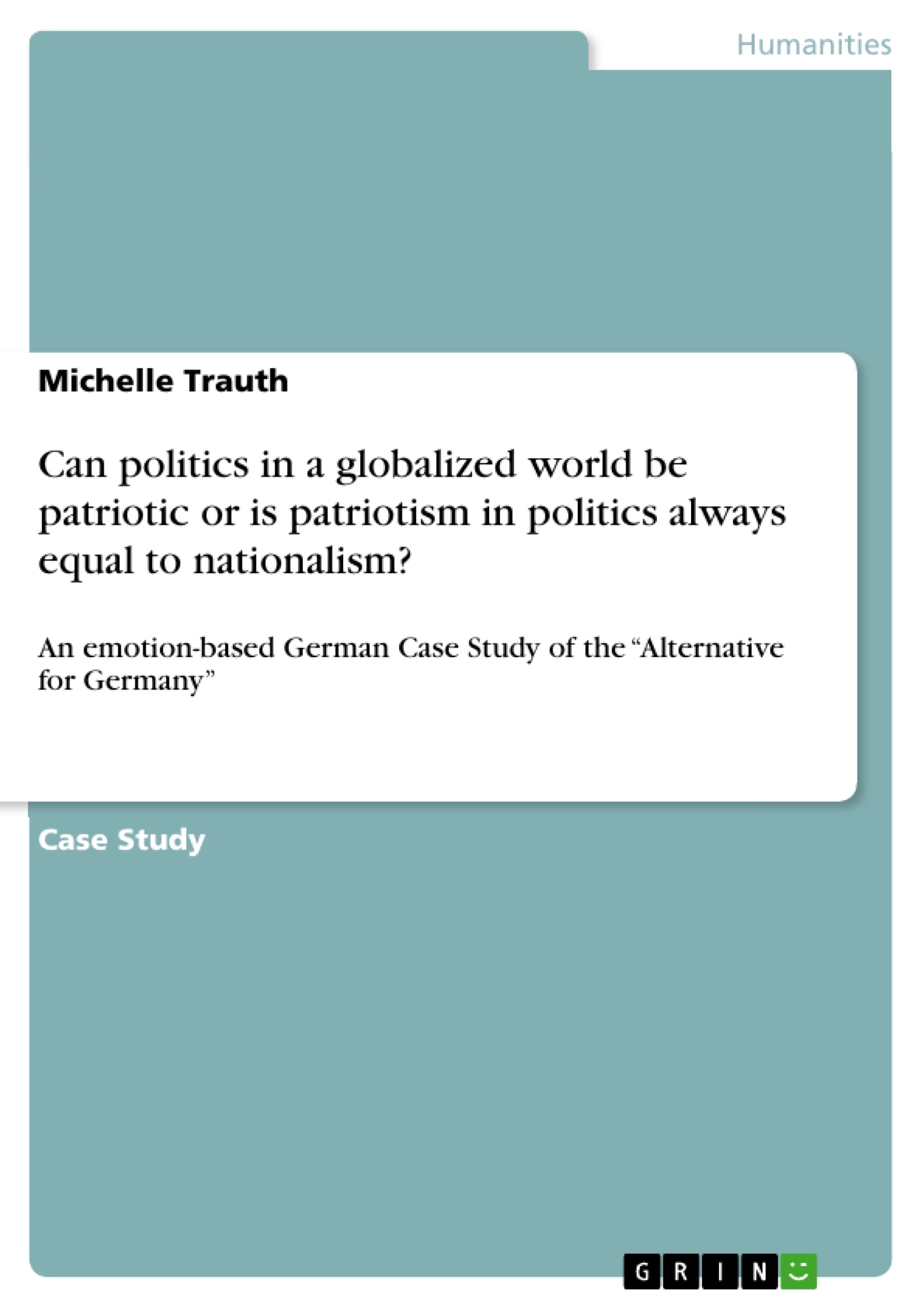In a globalized world and a network society, people are connected beyond the borders of their home country. The role of the nation state is losing its significance and most people are becoming more global-minded. Therefore, it is interesting to explore to what degree politics in a globalized world can be patriotic without discriminating others or expressing nationalistic and xenophobic views. While most people are encouraging global integration and respect different cultures melting together, some people feel differently. With the rise of globalization and cultures developing beyond restricted geographic borders, populist movements have also risen. This is for example visible in Europe. The European Union has been growing over the past decades, but so have nationalistic parties. This development is increasingly polarizing European politics and splitting society.
This essay aims to give an insight on the formation of populist parties from a psychosocial perspective. The psychosocial approach is combining the complexity of a psychological and sociological analysis.
“Psychosocial research draws inspiration from a range of sources including sociology, psychoanalysis, critical psychology, critical theory, post-structuralism, process philosophy, feminism, post-colonial theory, queer theory and affect theory” (Association for Psychosocial Studies 2018).
By analyzing how an emotion such as hatred is triggered and influences a person’s perception, one aspect of the rise of populist parties can be explained. Another important aspect of understanding the rise of populist parties in Europe is the sociological aspect. It explains what happens when multiple individuals get together who all feel the same way about something.
The findings of the psychosocial analysis will then be applied to a political context: Can politics in a globalized world be patriotic or is patriotism in politics always equal to nationalism?
To answer this research question, a case study on the German political party “Alternative for Germany” will be conducted. In this case study, posters of the party will be analyzed to point out the difference between the portrayed and the subliminal meaning. By pointing out how this party uses patriotic images to promote nationalistic views, it will be possible to provide a better understanding of the problem and to find an answer to the research question.
Inhaltsverzeichnis (Table of Contents)
- Introduction
- Emotions
- Types of Emotions
- Hatred
- Psychological Aspects of Hatred
- Sociological Aspects of Hatred
- Nationalism
- Patriotism
- Populism
- Case Study
- Social Context
- Analysis of posters
- Interpretation of findings from a psychosocial perspective
- Conclusion
Zielsetzung und Themenschwerpunkte (Objectives and Key Themes)
This essay aims to provide insights into the formation of populist parties from a psychosocial perspective. By combining psychological and sociological analysis, it explores how emotions like hatred are triggered and influence people's perceptions, contributing to the rise of such parties. The study focuses on the German political party "Alternative for Germany" and analyzes its use of patriotic imagery to promote nationalistic views.
- The role of emotions, particularly hatred, in shaping political ideologies and movements.
- The interplay of psychology and sociology in understanding the rise of populist parties.
- The distinction between patriotism and nationalism in a globalized world.
- The use of patriotic imagery and symbolism by populist parties to promote nationalistic agendas.
- The impact of globalization and cultural integration on the development of national identity and political movements.
Zusammenfassung der Kapitel (Chapter Summaries)
The first chapter introduces the research question: can politics in a globalized world be patriotic without promoting nationalism? The essay then delves into the role of emotions, particularly hatred, in political discourse, exploring both its psychological and sociological aspects. Chapter three discusses the concept of nationalism and its various manifestations, while Chapter four examines patriotism. The essay concludes with a case study on the "Alternative for Germany" party, analyzing its use of patriotic symbolism to promote nationalistic views.
Schlüsselwörter (Keywords)
The study explores key concepts such as emotions, hatred, nationalism, patriotism, populism, and globalization. It also focuses on the political context of the "Alternative for Germany" party and its use of patriotic imagery. The analysis draws from psychosocial research, examining the interplay of psychology and sociology in understanding political movements.
Frequently Asked Questions
Can politics in a globalized world be patriotic without being nationalistic?
The essay explores this boundary, investigating whether patriotism can exist without xenophobia or the discrimination inherent in modern nationalism.
What is the psychosocial approach to analyzing populism?
It combines psychological analysis (individual emotions like hatred) with sociological analysis (group dynamics) to explain the rise of populist movements.
How does the "Alternative for Germany" (AfD) use patriotic imagery?
Through a case study of posters, the essay shows how the party uses subliminal meanings in patriotic symbols to promote nationalistic and polarizing views.
What role do emotions like hatred play in politics?
Hatred can be triggered to influence perception, splitting society and driving support for populist parties that promise to protect national identity.
How does globalization fuel populist movements?
As borders become less significant, some groups feel a loss of identity, leading to a rise in movements that emphasize national sovereignty and traditional culture.
- Quote paper
- Michelle Trauth (Author), 2018, Can politics in a globalized world be patriotic or is patriotism in politics always equal to nationalism?, Munich, GRIN Verlag, https://www.grin.com/document/444374



